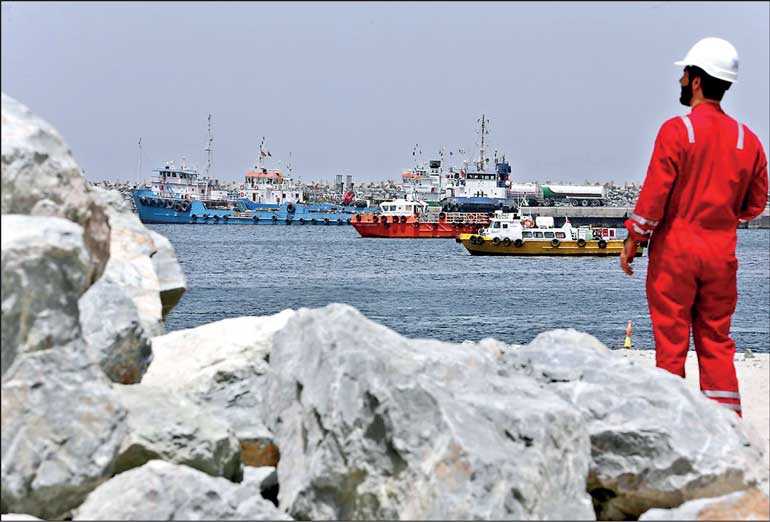Tuesday Feb 17, 2026
Tuesday Feb 17, 2026
Friday, 17 May 2019 00:00 - - {{hitsCtrl.values.hits}}

RIYADH/DUBAI (Reuters): Attacks on Saudi tankers and other vessels off the coast of the United Arab Emirates this week expose vulnerabilities in the security of a key oil-shipping route amid rising tensions between the United States, Iran and Gulf Arab states.
The operation near the Strait of Hormuz appeared designed to test the resolve of the United States and its Sunni Muslim allies without triggering a war, after Washington tightened sanctions on Iran and beefed up its military presence nearby.
The UAE has not characterised the sabotage or blamed anyone, but US national security agencies believe proxies sympathetic to or working for Iran may have been behind it, a US official has said. Tehran has distanced itself from the incident, which no one has claimed.
“This is a pin-prick event, a little needle-like jab at the maritime trade going into the Strait of Hormuz,” said risk management and security firm MAST Chairman Gerry Northwood.
The attack took place off Fujairah emirate, just outside the Strait, a narrow waterway separating Iran from the Arabian Peninsula where a fifth of global oil consumption passes from Middle East producers.
Two days later, Saudi Arabia said armed drones had hit two oil pumping stations in the kingdom, an attack claimed by the Iran-aligned Houthis in neighbouring Yemen.
The US Navy’s Bahrain-based Fifth Fleet is tasked with protecting commercial ships in the area. The British and French navies maintain a presence, while Saudi Arabia and the UAE have high-tech naval capacities.
But Gulf Arab states are struggling to build an effective system to defend against drones and low-tech sabotage attempts, Eurasia Group said in a note.
“There are hundreds, if not a few thousand, small boats moving in that area every day. Many of these vessels are smugglers operating between Iran and the Gulf states,” said Norman Roule, a retired senior US intelligence officer.
“This will make it difficult, but not impossible, to trace any small vessels which may have been involved in the operation.”
Port security in Dubai, the region’s trading hub, was unchanged, a spokeswoman for the government media office said.
But the UAE may still face pressure to increase patrols.
“The UAE needs to send a signal to reassure the shipping industry that Fujairah is safe and this is not going to happen again,” a Western diplomat in Abu Dhabi said.
More than three days on, little information has been provided on where the ships were when they were attacked, what sort of weapon was used, and who did it.
Navigational data indicated at least some of the ships may have been within nine nautical miles of the shore, well within UAE territorial sea. Saudi Arabia’s energy minister has said at least one of them was further out, in the UAE’s exclusive economic zone where international law largely applies.